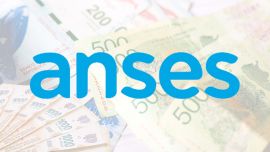In today’s world, there’s a strong tension between the free flow and access to information that the Internet has made possible and the economic pressure it has generated on traditional media companies, courtesy of the large digital platforms that have eaten up a great part of the potential revenue. This past week, the Inter American Press Association (or SIP in its Spanish acronym) celebrated its General Assembly in the province of Salta, where they penned a declaration titled ‘On freedom of speech in the digital era.’
It saddens me, as a representative of Editorial Perfil — which is a member of the SIP — that the Salta Declaration ended up being a document that benefits the large companies that dominate today’s digital world, namely Google and Facebook. It’s worth noting that Google was one of the main sponsors of the Assembly, at the same level as the executive power of this country (the event counted President Mauricio Macri as an attendee) and The New York Times.
In general terms, the declaration consists of 13 points that reflect some of the basic concepts underpinning the necessary conditions to guarantee free speech and a free press in a digital world: an open and transparent digital ecosystem, where government and private parties abstain from censorship or the abuse of technological tools to silence critical voices, or, on the contrary, to generate disinformation campaigns and/or fake news.
The real problem lies within two points, 10 and 11, which are essentially literal copies of the arguments frequently used by lobbyists working for these corporations to allow them to operate outside any regulatory framework, effectively allowing them to generate their own laws.
To begin with, SIP asks the platforms to “self-regulate” in order to “prevent the deliberate dissemination of disinformation.” It’s worth remembering that it was platforms such as YouTube (which is owned by Google), Twitter, and Facebook that allowed the distribution of maliciously fake messages, which in turn were used to manipulate the electorate in the last presidential election in the United States, the one in which Donald Trump was elected president. All to the economic benefit of the platforms, of course. How? Simple: they earned hundreds of millions of dollars from supposed advertisers who paid to spread their messages on their networks.
When professional journalists uncovered what was happening, thanks to the well-known Cambridge Analytica scandal, highranking executives apologised. Yet, they never returned a single penny. Instead, they shipped those profits to Ireland and other offshore tax havens where these companies accumulate fortunes many times greater than the size of the GDP of many of the nations the signatories at the SIP Assembly represented.
The SIP’s Salta Declaration then urges sovereign states not to impose legal responsibilities on these platforms for the content that flows through their networks. Thus, Google, Facebook and the rest of them are telling us that a) they will regulate themselves and, b) if anything goes wrong, they’re not liable. Not only would that platforms be free from legal responsibility if another Cambridge Analytica-like situation were to occur, they are also covered in their theft of content, whether it be generated by media companies like Editorial Perfil, or musicians, artists, individuals or groups looking to capitalise on the fruits of their creative efforts.
Maintaining a full staff of journalists, designers, photographers, camera crews, web developers, sales teams, administrative teams, and every other necessary position to keep a professional media company going is costly. If we – or the others like us – didn’t invest in these areas, investigations like the one that gave birth to the so-called ‘corruption notebooks scandal here in Argentina, or the Cambridge Analytica investigations in the United Kingdom and the United States wouldn’t see the light of day. Yet, while media companies media fail to make ends meet, Google and Facebook hide behind the argument that they are not responsible for the content they deliver to users, in order to avoid paying for the hard labour of others, all while becoming two of the most valuable companies in the history of capitalism.
Fortunately for the industry, the Salta Declaration also included point 12, which argues for a fairer distribution of the earnings generated by the digital ecosystem, taking into consideration copyright and intellectual property protection. However, that seems to be a case of too little, too late. It’s impossible to have a fair and balanced ecosystem when a group of players exert monopolistic power, even managing to get organisations such as SIP, who are supposed to take care of the press, to give them a free pass. Google’s influence in academic and intellectual circles is well-documented, paying what for the search giant are just coins in exchange for ideological adhesion.
This is not about demonising
Google, Facebook, and the
rest of the digital players (take
note that Amazon’s fastestgrowing
business unit at present
is focused on digital
advertising, while Apple
is dipping its toes in the
water), rather it’s about
generating the necessary
conditions for media companies
to survive and invest
in more and better journalism.
The Silicon Valley giants are private companies
that are looking to maximise their
individual benefit, but when what they are
trafficking is the information that permeates
society’s collective consciousness,
the equation is different.related news





















Comments